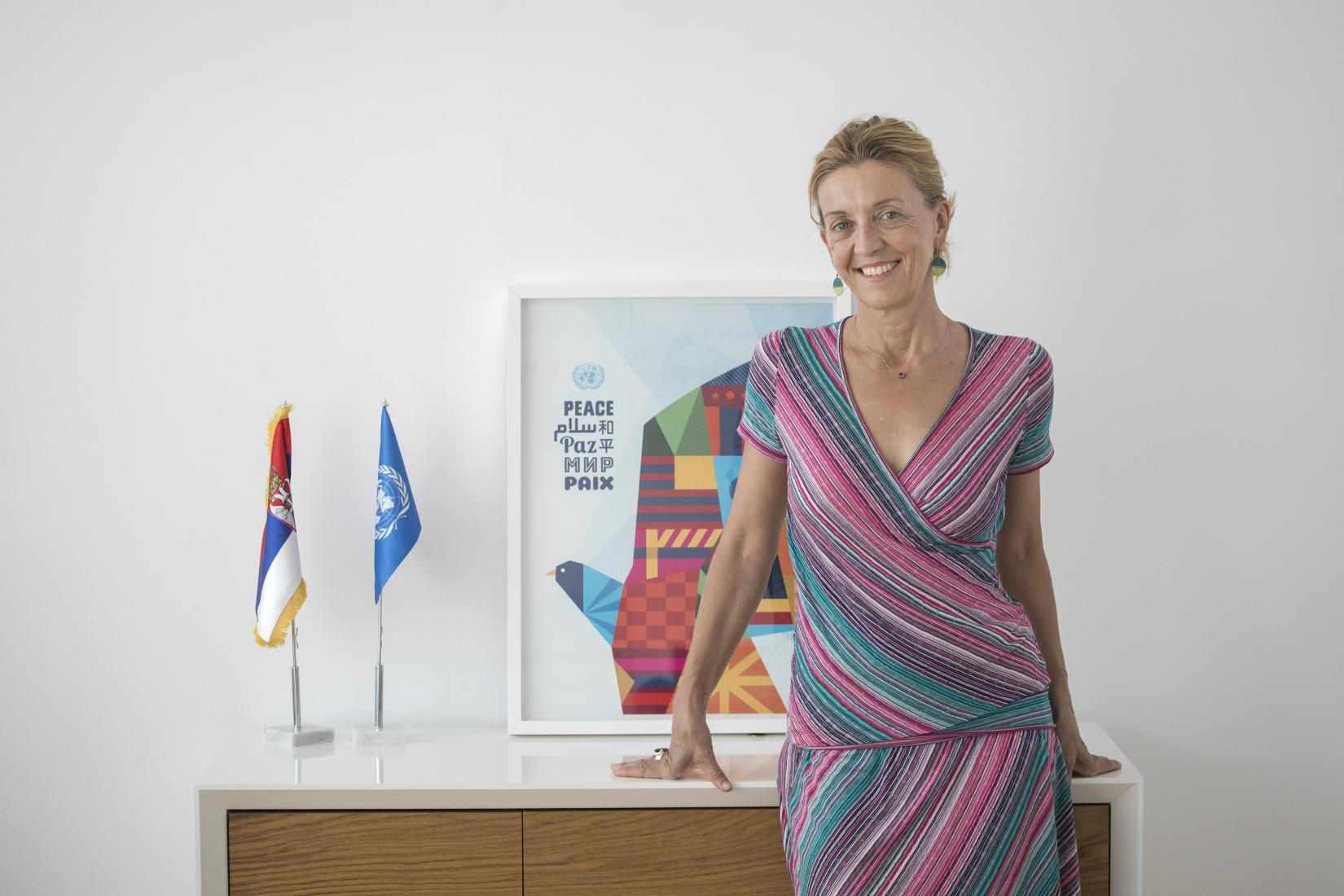Serbia's Commitment to Sustainable Development: Building on Progress, Acting on Necessity
19 September 2023
Op-Ed by UN Resident Coordinator in Serbia, Francoise Jacob on the occasion of the UNGA 78 and SDG Summit in New York.

This week, heads of state of 193 countries will gather in New York for the annual General Assembly of the United Nations. 2023 marks the mid-point to agenda 2030 and the ambitious objectives of the Sustainable Development Goals, as set out in 2015. The goals outlined the shared responsibility of each state towards building a better, safer, and more sustainable future for all, while preserving the integrity, richness, and diversity of our planet.
Since early 2020, our world and humanity have been caught in multiple crises with global impacts, such as the COVID19 pandemic, conflicts in Ukraine and the Sahel, extreme weather events with catastrophic consequences on lives and economies, inflation and energy related tensions, increased flows of refugees and migrants fleeing violence and famine. In that context, on September 19, the United Nations organizes the SDG Summit, on the side of the General Assembly. Its main objective is to recognise areas of progress in sustainable development, to highlight the wide gaps remaining in terms of fighting inequalities, climate change, pollution and loss of biodiversity. The summit will provide an opportunity to focus on accelerators that can really transform societies and economies.
In the past 3 years, Serbia embraced several such transition and acceleration initiatives. The country now has a national pathway towards sustainable food systems, that looks at how to make food production, distribution, and consumption more in line with sustainability principles: a reduced carbon footprint, elimination of polluting agricultural practices, reduced destructive impact on biodiversity, increased equity for farmers, better health for people. Equally important is the Transforming Education initiative, which looks at how we can build a more inclusive education system, address the risk of increased violence at school and in society, prepare our children to contribute meaningfully to climate and environment actions by becoming responsible citizens.
Other global initiatives taken up by Serbia include the digital transformation and the energy transition. Serbia has led some promising projects in such areas, including in renewable energy and biotechnology. The digitalization of the economy and society, as well as the green transformation and energy transition must be shaped so that the more vulnerable segments of the population are not negatively affected. Such just transition addresses the specific needs of the poorest segments of the population, those directly impacted by mine closure, those at risk of energy poverty or increased pollution – and should be built in coherence with more targeted social protection mechanisms.
Intersectoral effectiveness is an essential accelerator to transformation – the capacity of ministries, national and local governments to work better and more intelligently together. It also means a greater focus on bringing the different stakeholders around the negotiation table, particularly when new laws are being developed and formulated, or when services are being developed in municipalities. In this regards, we hope that Serbia’s future National Development Plan will highlight the opportunities for greater coordination and synergies between sectors and stakeholders. Good engagement between state and non state actors, such as civil society and the private sector, are necessary to build effective and inclusive systems. Civil society and local representatives can provide a wealth of perspective from communities and citizens, while the private sector has the financial and technical capacity to tremendously accelerate any transformation.
Serbia has the right size and capacities to make such transition a success within the next 12 to 15 years, providing that local and national political leaders shape a vision that harnesses the energy of all. Such vision, based on a healthier and safer future, more solidarity and equity, and a greener world, would directly contribute to greater social cohesion. On that note, discrimination based on gender, ethnic groups, sexual preferences, or being a refugee, remains one of the worst impediments to building a resilient and inclusive society, and Serbia needs to continue its efforts to transform and implement all relevant laws and practices.
We have to shift the narrative of our future from one of threats to one of opportunities. With intelligence, flexibility and resilience, together we can build such a different world based on shared wealth, solidarity and peace. The SDG Summit is a great opportunity for us to come together, exchange ideas, and reaffirm our commitment to sustainable development. We hope that Serbia will become a driving force in advancing the Sustainable Development Goals.


















